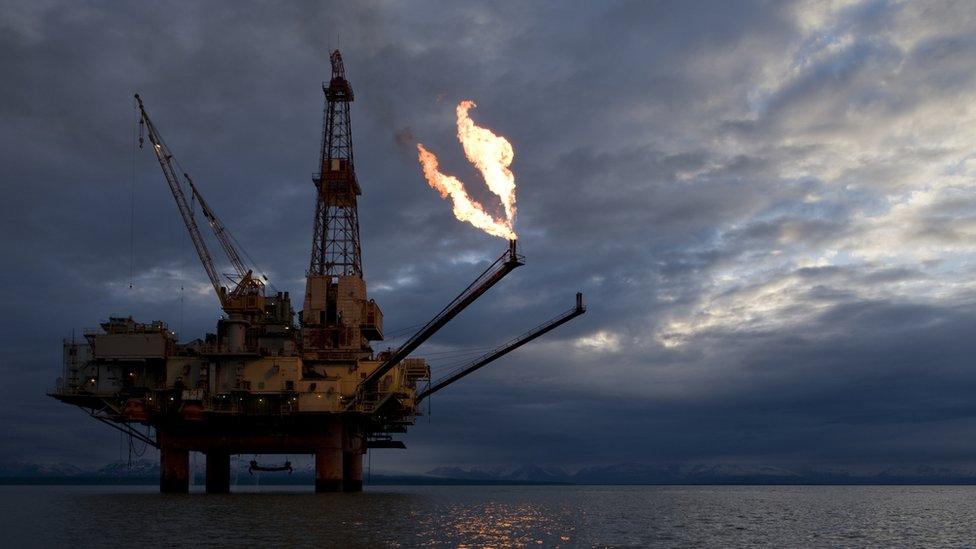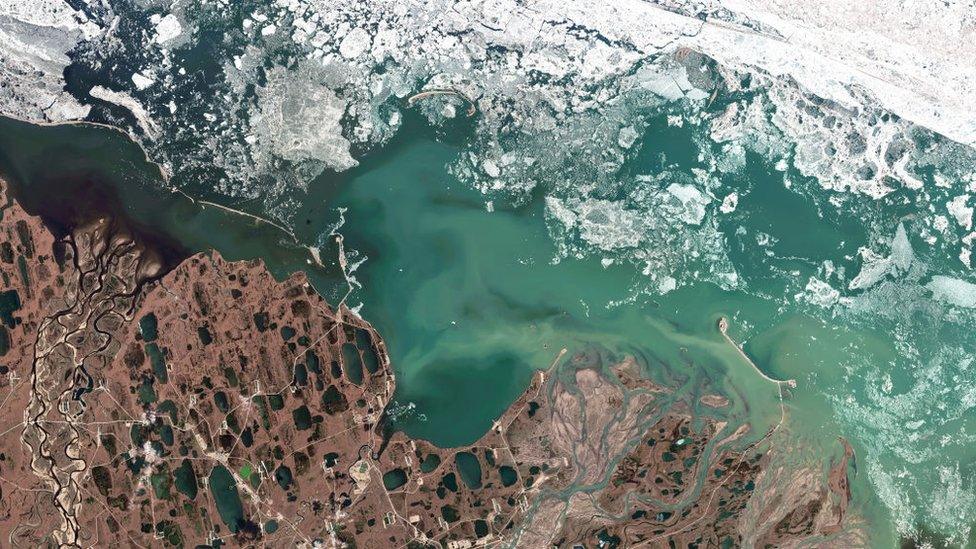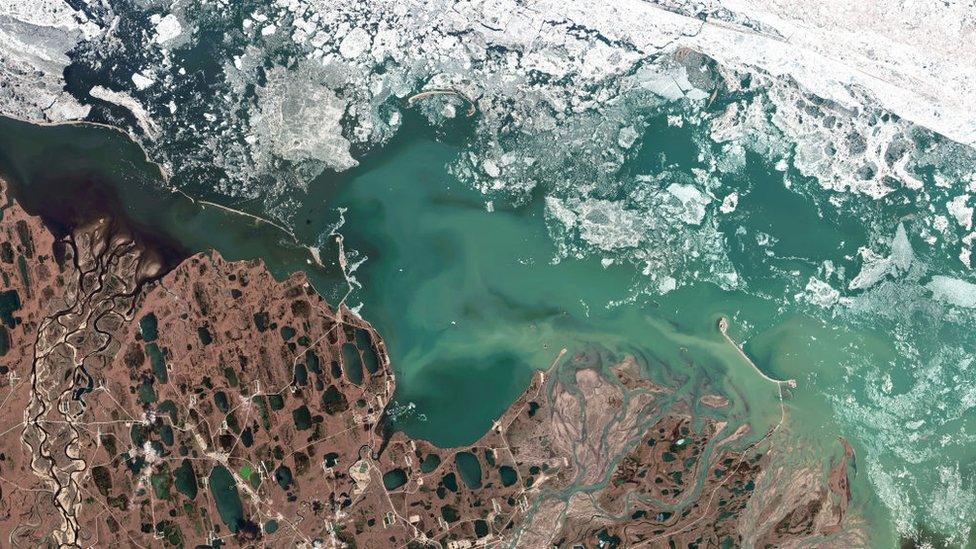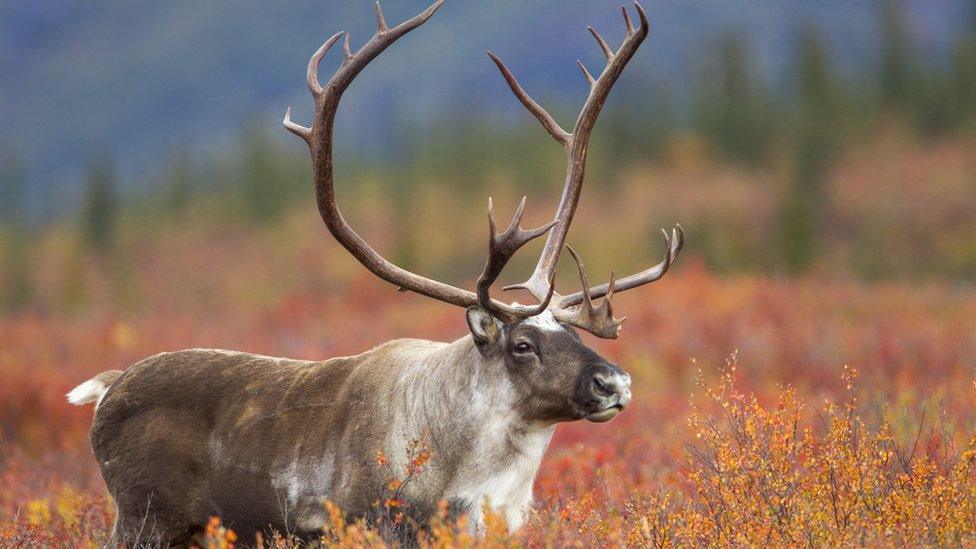Willow project: Biden walks political tightrope over Alaska oil project
- Published

The approval of the Willow project comes after the US government imposed limits on oil and gas drilling in parts of Alaska and the Arctic Ocean
US President Joe Biden has approved a major oil and gas drilling project in Alaska, intended to create local investment and thousands of jobs.
But the Willow project has faced strong opposition from environmental activists over its climate and wildlife impacts.
So why has Mr Biden, a president who has embraced strong action on climate change, approved a project dubbed a "carbon bomb"?
It's because Willow is very much about politics and the law - and not just the environment.
While running as a candidate back in 2020, Joe Biden promised that there would be "no more drilling on federal lands, period".
That statement helped him garner support from green Democrats and climate campaigners, unsure about Biden's record on this issue.
However, that campaign promise was broken last year when the administration announced plans to sell drilling leases under pressure from the courts.
The White House will likely say that the role of the courts has also influenced the Willow decision.
Oil company ConocoPhillips has held the lease since 1999 and would have had a strong case to appeal if their plans had been turned down.
The Biden administration is obviously aware that from a purely climate perspective the project can't really be justified.
The International Energy Agency has baldly stated that if the world wants to keep the rise in global temperatures under 1.5C, no new oil or gas drilling can go ahead.
So, in an effort to limit the impact of the Willow approval, the White House has outlined new bans on oil and gas leasing in the Arctic Ocean and across Alaska.
Most environmentalists aren't buying this trade-off.
Willow is also a political decision.
Mr Biden came to COP27 in Egypt and spoke of the big picture of climate change, threatening the "very life of the planet" - but he's also attuned to US bread-and-butter issues, especially the price of gas.
Last year, in response to the Ukraine war, the White House authorised the release of millions of barrels from the US strategic petroleum reserve. This helped push down prices at the pump.
With a presidential election in 18 months, Mr Biden is keen to reinforce his reputation as a moderate.
Approving a reduced version of the original Willow plan will be sold as underlining the President's ability to forge compromises across political divides.
Trade unions are backing the project, as are many native groups across Alaska who argue that Willow will boost jobs, local revenues and eventually oil supplies.
Mr Biden's supporters argue that the cut-down project will see measures put in place to offset some of the extra emissions by planting trees, and the US target of curbing CO2 by 52% below 2005 levels would still be achieved.
But the decision is fraught with political danger.
Willow saw unprecedented opposition on social media, drawing over three million signatures on a petition against the project.
In giving the greenlight to drilling, President Biden is now risking the support of many young people who voted for him in large numbers in 2020.
Related topics
- Published14 March 2023

- Published13 March 2023

- Published10 March 2023
